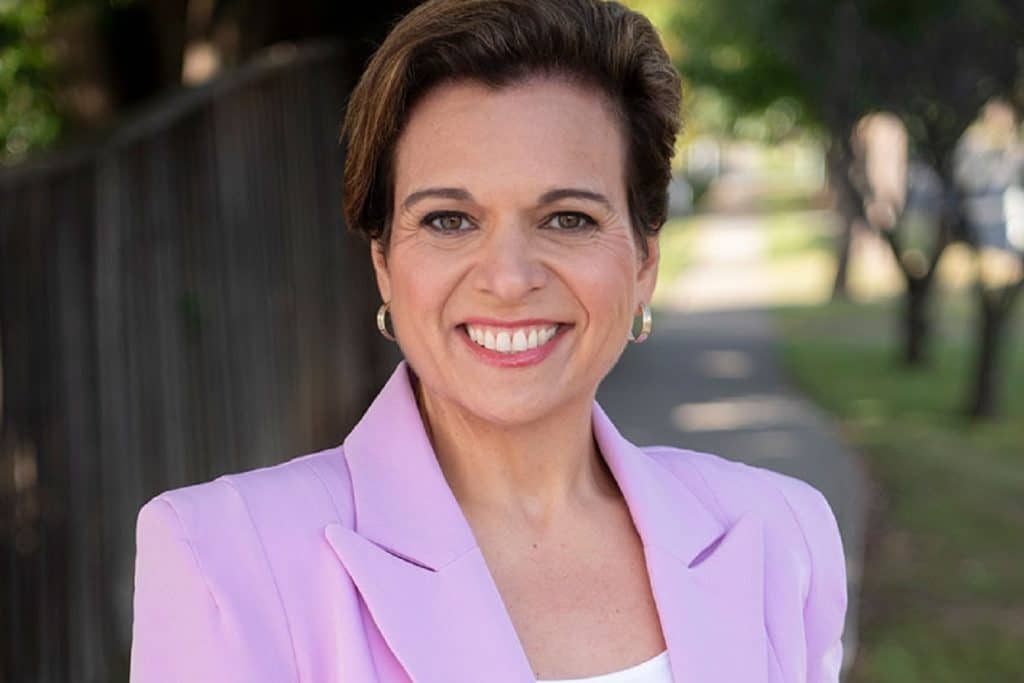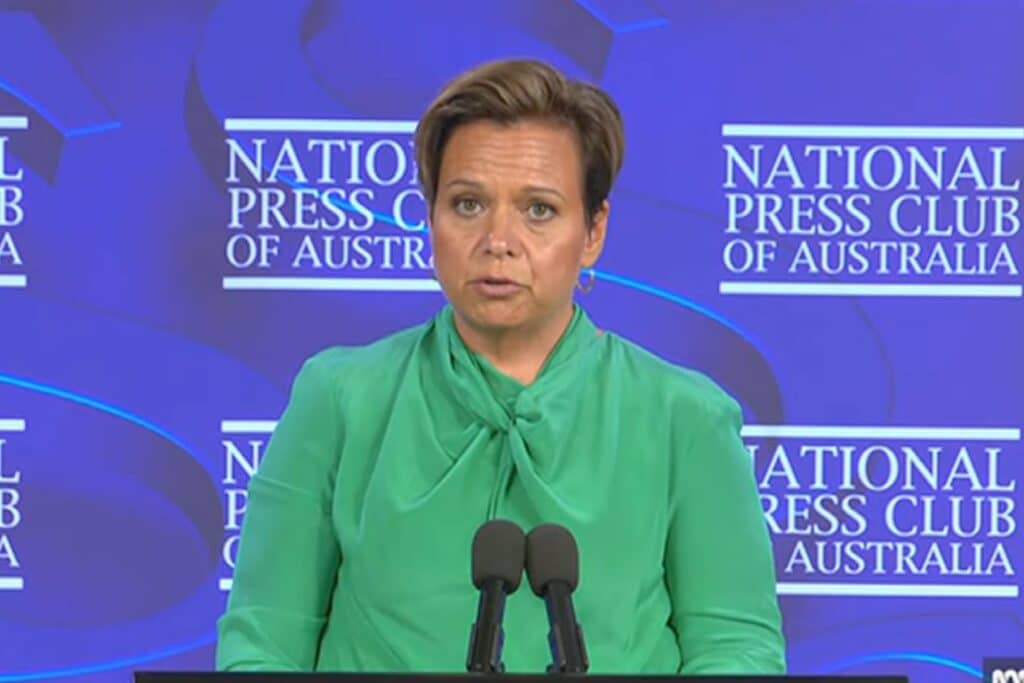The Federal Minister for Communications Michelle Rowland has outlined the government’s next steps in addressing online safety, particularly for children and young people.
The Minister fronted the National Press Club on Wednesday discussing the risks faced on social media platforms, dating apps and gambling advertisements in the “era of digital giants”, and how the Albanese Labor government plans to address the challenges.
“Within a complex network of networks, there is rarely a net solution to a challenge,” Minister Rowland said.
“While the technology itself is complex, that pales in comparison to the interactions and collaborations enabled by it.”
In her Press Club address, Minister Rowland announced on behalf of the federal government that consultation for proposed legislation amendments to “strengthen Australia’s basic online safety expectations” will commence today. Submissions will be open until February 16, 2024.
Rowland also said the review of the Online Safety Act, as promised, has also been brought forward one year, expected to commence in early 2024. The Minister announced in the Press Club address that Delia Rickard, the former deputy chair of the ACC, will conduct the review.

These steps towards addressing online safety in Australia come after research from the University of Canberra reported 70 per cent of Australians are concerned about misinformation.
“Both misinformation and disinformation can cause serious harm, sow divisions within the community, undermine trust and threaten public health and safety,” Rowland said.
“In the era of digital giants, it’s more important than ever that Australia asserts its values and the community standards we expect online.”
Minister Rowland spoke about the responsibility digital platforms and the government alike have to protect people, particularly youth, online.
“There is a difference between a young person having a bad experience in the schoolyard and being subjected to a deluge around the clock abuse and harassment over social media,” she said.
“This is not to say that one is more benign than the other – just that it is critical we understand these differences so that we can be intentional about the appropriate regulatory settings that should apply.”
The safety of dating apps is also a major concern for the Minister.
“The dating apps are offering a hugely popular service. It’s now the most common way to meet someone in Australia,” she said.
“But Australians need to be able to do so safely.”
Reflecting on her own media consumption habits as a young person – reading newspapers, listening to the radio and watching television – Minister Rowland said the “vectors” of communications have “not only expanded, but their ability to scale has increased”.
This is in part due to the emergence of generative AI, the Minister said.
“Indeed, the potential for the spread of AI generated messages information makes taking action even more pressing,” she said.
Humanitarian crisis in Gaza
As the world watches the humanitarian crisis in Gaza unfold, Islamophobia and anti-Semitism online has increased drastically.
It has been a major concern for the government, as expressed by many MPs in the House of Representatives, including independent MP Dai Le.
Le cited reports from the Executive Council of Australian Jewry, which reported 221 anti-Semitic incidents in the last month, 42 of which occurred within just one week.
Likewise, the Islamophobia Register Australia reported 133 incidents, which Le noted is likely to be higher, since Islamophobia largely goes unreported.
“Australia does not condone this abhorrent upward trend of targeted violence against any communities in our diverse country,” Le said.
At the National Press Club address on Wednesday, Rowland was asked whether “religious exemptions” would be considered in the proposed amendments to online safety and misinformation legislation.
“We understand that there has been concern from a variety of faith organisations that their religious views should not be considered as part of this,” Rowland said.
“We are working through that at the moment and we’ll have more to say in due course.”
Rowland said the government is planning to “work through precisely what those exemptions will be”.
“There have been calls for exemptions to be removed, including when it comes to authorised election material and also as it applies to media services as well,” she said.
“I’ve made it clear that those exemptions are in there for a reason. It’s because they are regulated elsewhere in different laws.”


